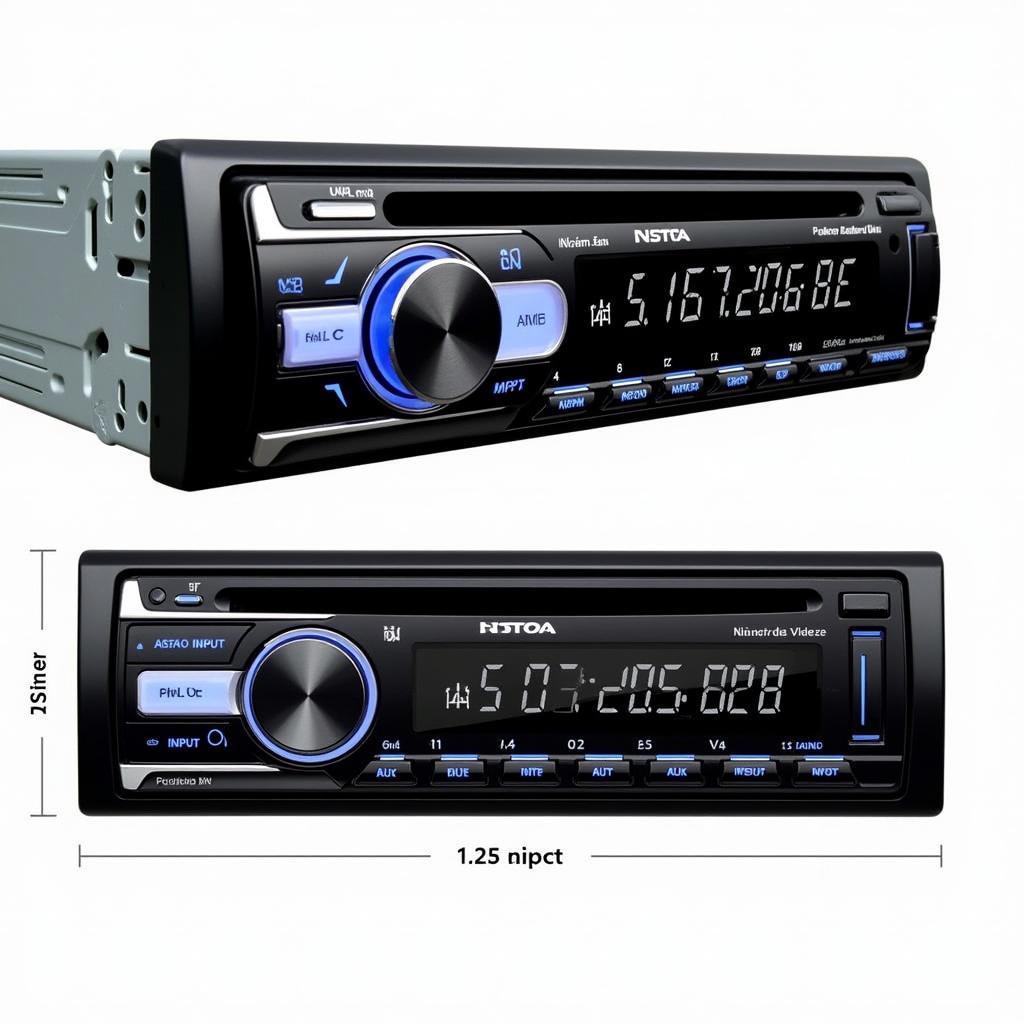Knowing the signs your car needs a new alternator is crucial for avoiding a breakdown. A failing alternator can lead to a dead battery, leaving you stranded. This article will guide you through the common symptoms of a bad alternator, helping you diagnose the problem early and prevent further issues. If you notice any of these signs, it’s time to consider alternator replacement.
One of the most obvious signs your car needs a new alternator is dim or flickering headlights. The alternator powers the electrical systems in your car, including the lights. If it’s failing, the lights will often be the first to show it. They might dim at idle or flicker when you accelerate. This is because the alternator struggles to produce enough power to meet the demands of the electrical system. If your car battery is discharged, you may notice similar symptoms. If you’re unsure, check if your car battery is discharged before assuming it’s the alternator.
How to Tell if Your Alternator is Going Bad
Besides flickering lights, there are other signs your car needs a new alternator. Listen for unusual noises. A failing alternator can produce a whining or growling sound, often due to worn-out bearings. This sound typically gets louder as the engine speed increases. Another indicator is a dead battery. While a dead battery can have multiple causes, a faulty alternator is a common culprit. If your car won’t start and you’ve recently jump-started it, a bad alternator might be preventing the battery from recharging. What if my car won’t start? Checking the alternator is a good place to start troubleshooting.
Why is My Car Battery Dying? It Could Be the Alternator
A frequently asked question is, if car battery dies will it recharge? A healthy alternator will recharge the battery as you drive. If the alternator is failing, the battery won’t recharge and eventually will die completely. Electrical issues, like slow power windows or malfunctioning accessories, are further signs of a failing alternator. The alternator provides power to all these systems, and a weakened alternator will struggle to keep up with the demand. Sometimes, the smell of burning rubber or wires can also indicate an alternator problem. This occurs when the alternator overheats due to internal failure.
“A bad alternator can be a real headache,” says John Smith, Lead Automotive Technician at Smith Auto Repair. “It’s crucial to address the issue promptly to avoid further damage and costly repairs.”
Troubleshooting a Failing Alternator
Diagnosing a failing alternator often involves testing its output voltage using a multimeter. A healthy alternator should produce around 13.5 to 14.5 volts. Lower readings indicate a potential problem. “Regular maintenance can help prevent alternator issues,” advises Jane Doe, Electrical Systems Specialist at Doe’s Auto Electric. “Simple checks like inspecting the drive belt and ensuring proper connections can go a long way.” If your car batteries die in cold weather more frequently, a failing alternator might be exacerbating the problem. The increased electrical load in cold conditions can strain a weakened alternator. The car wouldn’t start after a cold night? It’s possible your alternator is struggling.
What Happens if I Drive with a Bad Alternator?
Continuing to drive with a bad alternator can lead to a complete electrical system failure, leaving you stranded. It can also damage other components, like the battery and various electronic modules, leading to costly repairs.
Conclusion
Recognizing the signs your car needs a new alternator can save you time, money, and frustration. From dimming headlights to a dead battery, being aware of these symptoms allows you to address the issue promptly. If you experience any of these signs, it’s crucial to have your alternator tested and replaced if necessary. Don’t wait for a complete breakdown. Taking action at the first sign of trouble ensures a smooth and safe driving experience.
FAQ
- How long does an alternator typically last? Alternators generally last between 7 and 10 years, depending on usage and driving conditions.
- Can I replace an alternator myself? While possible, replacing an alternator can be a complex task. It’s often recommended to have it done by a qualified mechanic.
- What is the average cost of alternator replacement? The cost varies depending on the make and model of your car but typically ranges from $300 to $800.
- Can a bad alternator drain my battery while the car is off? Yes, a faulty alternator can continue to drain your battery even when the car is off, due to internal shorts or other issues.
- How can I prevent alternator problems? Regular maintenance, including checking the drive belt and connections, can help prevent alternator issues.
- Is it safe to drive with a bad alternator? No, driving with a bad alternator is not safe as it can lead to complete electrical failure and strand you.
- What is the difference between a battery and an alternator? The battery stores electrical energy, while the alternator generates electricity to power the car’s systems and recharge the battery.

